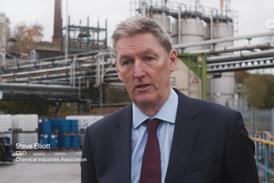To mitigate the impact of high energy cost on the UK’s manufacturing supply chains it is critical that the Government’s flagship BIC Scheme provides relief across the whole scope of the chemical sector (all SIC codes between 20.11 and 21.10). The Government must also avoid any arbitrary business-level threshold for qualification, that might exclude firms that are in vital need of action on carbon leakage mitigation. Meeting these criteria would immediately improve the competitiveness of one of the UK’s vital foundation industries, reduce the cost of critical inputs to downstream IS8 sectors, and improve the business case for electrification in a hard-to-abate sector.
In June, the UK Government launched its Modern Industrial Strategy to kick-start economic growth in key sectors – the Industrial Strategy Eight (or IS8) – and the foundation sectors that support them. As a foundation industry, the chemicals sector is cited throughout the Strategy and its accompanying Sector Plans as a critical contributor to advanced manufacturing, clean energy industries and life sciences supply chains. The Government recognises that chemical products sit at the core of all domestic manufacturing and that a competitive chemical sector is a pre-requisite for a competitive manufacturing sector.
In the same Strategy, the Government describes how uncompetitive energy prices have acted as a brake on industrial activity and the increased uptake of electrification, acknowledging that the unpredictability of UK energy prices compared to our international competitors makes it harder for British businesses to plan and invest. The Strategy affirms that if we are serious about being a leader in advanced manufacturing, net zero technology, and regional rebalancing, we must do what we can to address the high cost of energy in the UK.
In recognition of the strategic importance of tackling these barriers, the Strategy revealed that from 2027 a new British Industrial Competitiveness (BIC) Scheme will exempt over 7,000 electricity-intensive manufacturers from paying renewables-related levies on their electricity bills. Relief from these levies is already afforded to a small number of the most energy intensive industries through the British Industry Supercharger and the BIC Scheme will extend this relief across a larger cohort of businesses. This is welcome support, albeit that beneficiaries of the BIC Scheme will still not qualify for the relief on increasing network costs – i.e. payment for new pylons and cables – that is available under the Supercharger.
The Strategy sets out that the eligibility for the BIC Scheme will be determined by consultation this year, with a review point in 2030. To effectively lower the impact of high energy cost on the UK manufacturing supply chain, it will be important for the scheme to have the broadest applicability to chemical production and the lowest barriers to entry. In the chemical sector, the below SIC codes are currently eligible for the Supercharger:
20.11 - Manufacture of industrial gases
20.13 - Manufacture of other inorganic basic chemicals
20.14 - Manufacture of other organic basic chemicals
20.15 - Manufacture of fertilisers and nitrogen compounds
20.16 - Manufacture of plastics in primary forms
20.17 - Manufacture of synthetic rubber in primary forms
20.60 - Manufacture of man-made fibres
Yet many businesses within these SIC codes are ineligible for support because they fail to meet a business-level test, wherein businesses must show that their electricity costs amount to 20% or more of their GVA. This test excludes many businesses that trade internationally, for whom marginal changes to energy cost make the difference between winning and losing market share. Moreover, many energy intensive parts of the chemical sector, which feed into valued manufacturing supply chains, are not currently eligible for Supercharger support:
- 20.12 - Manufacture of dyes and pigments
- 20.20 - Manufacture of pesticides and other agrochemical products
- 20.30 - Manufacture of paints, varnishes and similar coatings, mastics and sealants, and ink
- 20.41 - Manufacture of soap and detergents, cleaning and polishing preparations
- 20.42 - Manufacture of perfumes and toilet preparations
- 20.51 - Manufacture of explosives
- 20.52 - Manufacture of glues
- 20.53 - Manufacture of essential oils
- 20.59 - Manufacture of other chemical products
- 20.60 - Manufacture of man-made fibres
- 21.10 - Manufacture of basic pharmaceutical products
To mitigate the impact of high energy cost on the UK’s manufacturing supply chains it is critical that the Government’s flagship BIC Scheme provides relief across the whole scope of the chemical sector (all SIC codes between 20.11 and 21.10). The Government must also avoid any arbitrary business-level threshold for qualification, that might exclude firms that are in vital need of action on carbon leakage mitigation. Meeting these criteria would immediately improve the competitiveness of one of the UK’s vital foundation industries, reduce the cost of critical inputs to downstream IS8 sectors, and improve the business case for electrification in a hard-to-abate sector.






















